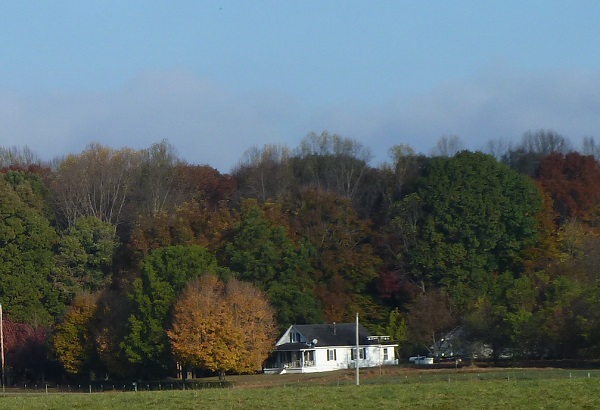Part and Parcel
 When our family sold the house where I grew up, we included all the property on that side of the road. Those few acres, in the middle of nowhere, held part and parcel of my childhood memories.
When our family sold the house where I grew up, we included all the property on that side of the road. Those few acres, in the middle of nowhere, held part and parcel of my childhood memories.
In addition to the house, we sold:
- The lot where my grandmother used to live
- The woods where we played
- Dad’s garden and orchard
- A small hay field that helped feed our cows
- The shop and garage
We kept all the farm property across the road. When we go fishing or check the farm, we still get to see our homeplace. However, the essential part of our childhood home no longer belongs to us.
Part and parcel means an essential part of anything.
It is a basic feature such as:
- Edits for writers.
- On-call duty for doctors, firefighters, social workers
- Middle of the night baby feedings for new parents
Success requires meeting those vital responsibilities.
This expression includes a legal background.
According to The Free Dictionary, part and parcel has been used as a legal term since the fifteenth or sixteenth century. Its main use was for “clauses of a law and for parts of a landholding.” Part means “a portion.” Parcel means “something integral with a whole.” The idiom “began to be used more loosely from about 1800. Although both nouns have the same basic meaning, the redundancy lends emphasis.”
The Bible holds part and parcel of God’s will for our lives.
- Love God.
- Love others.
- Repent and trust Jesus.
- Follow Jesus’ example.
For details, I urge you to read all the Bible.
“He has told you, O man, what is good; and what does the Lord require of you but to do justice, and to love kindness, and to walk humbly with your God?” (Micah 6:8 ESV).
Thanks to Ann Maniscalco for the suggestion.
Do you have an expression you want explained or a thought about this one? If so, please comment below.
Subscribe to receive my weekly posts by email and receive a free copy of “Words of Hope for Days that Hurt.”
If you enjoyed this post, please share it with your friends.
 When we put our hand to the plow, we are ready to work.
When we put our hand to the plow, we are ready to work.